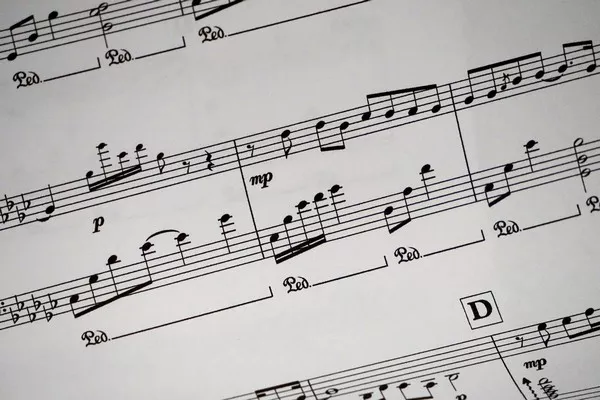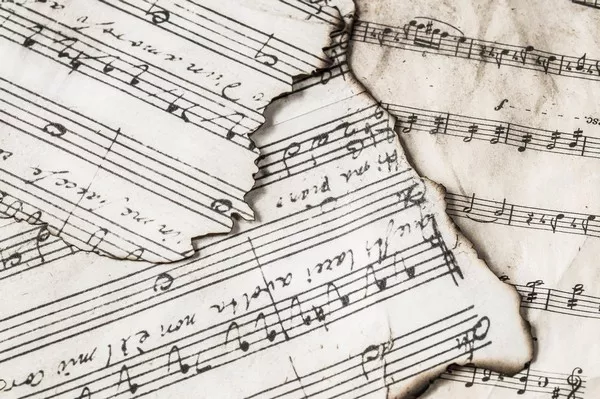Music, the harmonious blend of sound and rhythm, has been an integral part of human civilization since time immemorial. Yet, the quest to pinpoint the singular originator, the “father of music,” is an enigmatic pursuit. In exploring this compelling inquiry, we journey through epochs and cultures, tracing the footprints of influential figures who have shaped and defined music’s evolution. The title “father of music” has been attributed to various luminaries across history, reflecting diverse perspectives and contributions in the realm of musical creation and theory.
Ancient Notions: Tracing Origins in Myth and History
Delving into the abyss of ancient history, the concept of the “father of music” emerges from mythological tales and historical accounts. Among the Greeks, the legendary figure Orpheus often claims this prestigious title. Renowned for his mastery of the lyre and captivating melodies, Orpheus was revered as a musician whose music possessed enchanting powers. His influence transcended mortal realms, earning him the status of a divine figure and fostering the belief that he seeded the foundation of musical arts.
In Egypt, the deity Thoth, revered as the god of wisdom, language, and writing, is attributed with the invention of music. Egyptian mythology entwines Thoth with the creation of harmony and melody, paralleling his divine role in crafting the fundamental elements of music. These ancient depictions, while steeped in mythological narratives, highlight the primal recognition of music’s profound impact and the quest to assign its genesis to revered entities.
Medieval Maestros: Pioneers in Musical Innovation
The Middle Ages witnessed a resurgence of musical exploration, with pivotal figures contributing significantly to its evolution. Guido of Arezzo, an eleventh-century Benedictine monk, stands as a beacon in the annals of musical history. His development of the Guidonian hand, a mnemonic device aiding in the teaching of singing and sight-reading, revolutionized musical pedagogy. Although not strictly termed as the “father of music,” Guido’s contributions in musical notation and teaching methodologies laid the groundwork for future advancements.
Parallelly, the Persian polymath and philosopher Al-Farabi made indelible contributions to music theory. Revered as one of the great minds of the Islamic Golden Age, Al-Farabi’s treatises on musicology, notably “Kitab al-Musiqi al-Kabir” (The Great Book of Music), established him as an authority in the field. His elucidation on rhythm, modes, and the principles of music endured across centuries, shaping subsequent musical discourse.
Renaissance Maestros and the Birth of Modern Music
The Renaissance era ushered in an epoch of immense creativity and innovation, fostering the emergence of musical geniuses who reshaped the landscape of music. Claudio Monteverdi, a luminary of the late Renaissance and early Baroque periods, stands tall as a pivotal figure in the transition from the modal system to tonality. His groundbreaking operatic works, notably “L’Orfeo,” showcased his mastery in blending music with dramatic expression, furthering the evolution of musical storytelling.
The appellation “father of music” has also been bestowed upon Johann Sebastian Bach, a colossus in the realm of Western classical music. Bach’s unparalleled mastery of counterpoint and musical composition solidified his legacy as a composer par excellence. His enduring compositions, including the “Brandenburg Concertos” and “Well-Tempered Clavier,” epitomize musical perfection and continue to inspire generations of musicians.
Modern Titans and Contemporary Perspectives
As music traversed through the centuries, the concept of the “father of music” evolved alongside the ever-changing musical landscape. In the modern era, diverse perspectives emerge regarding influential figures who have left an indelible mark on music.
Arnold Schoenberg, the pioneering force behind the twelve-tone technique, challenged conventional tonality and opened new frontiers in composition. His innovations laid the groundwork for atonal and serialist music, marking a radical departure from traditional harmonic structures. While not conventionally hailed as the “father of music,” Schoenberg’s avant-garde contributions reshaped the trajectory of musical expression.
Moreover, the influence of African-American musical innovators, such as Louis Armstrong and Miles Davis, cannot be overstated in shaping the trajectory of jazz and modern music. Their improvisational prowess, innovation in harmonic language, and transformative impact on musical genres earned them a revered status in contemporary music history.
Conclusion: The Eternal Legacy of Musical Visionaries
The quest to anoint a singular figure as the “father of music” remains elusive, akin to attempting to confine the vastness of the musical spectrum within a single identity. Instead, the history of music unfolds as a rich tapestry woven by countless visionaries, each contributing their unique threads to the evolving narrative of musical expression.
From the mythical realms of ancient civilizations to the trailblazing innovations of modern maestros, the legacy of musical pioneers endures as a testament to human creativity and ingenuity. While the title “father of music” might elude a definitive assignation, its essence lies in the collective brilliance of minds that have sculpted and shaped the symphony of human emotions through melodies that transcend time and space.

























